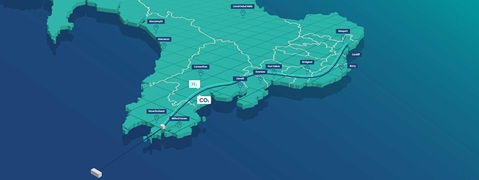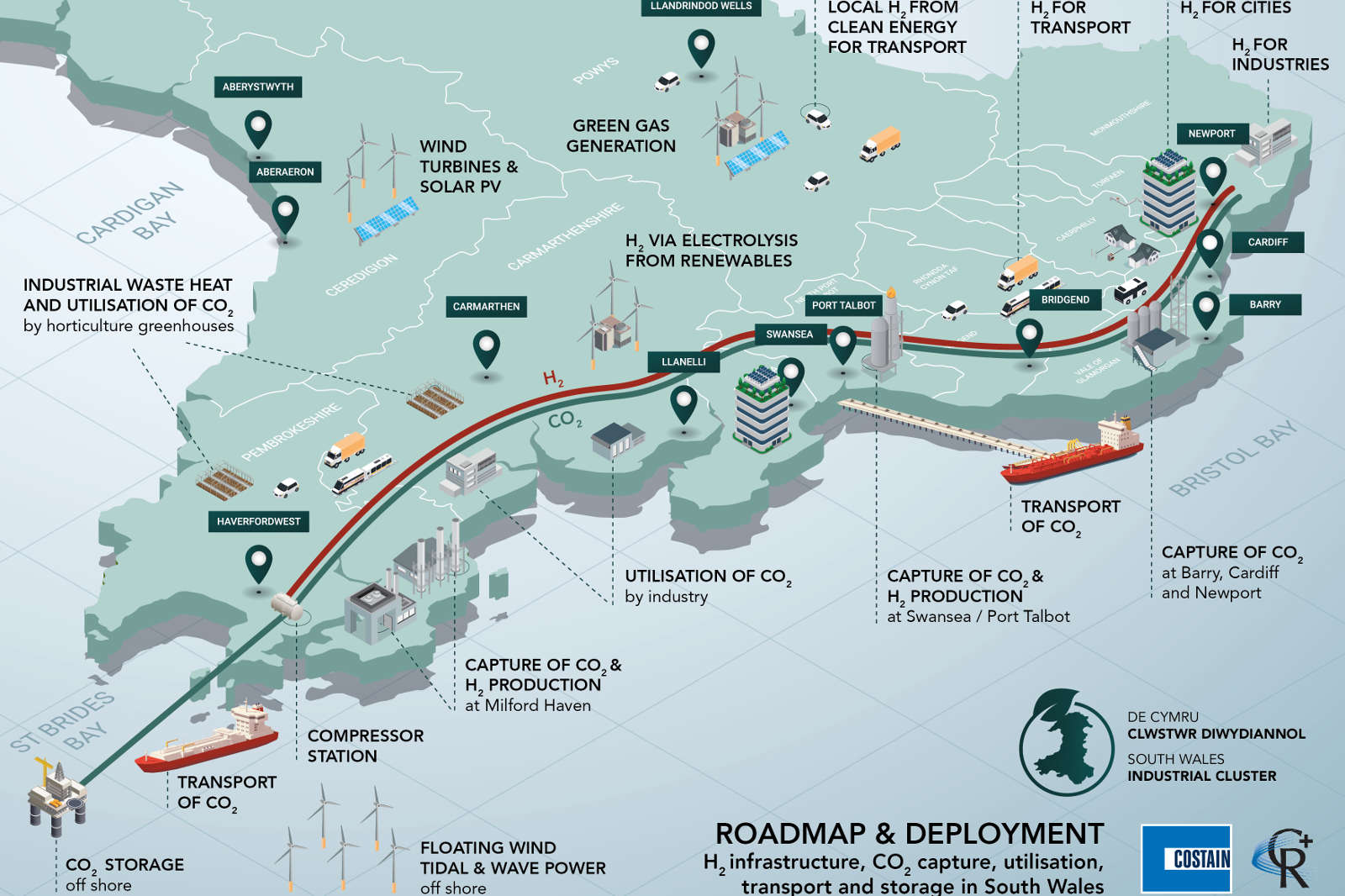Hydrogen
How RWE is actively helping to shape the age of hydrogen

Hydrogen is an important raw material for refineries and the chemical industry. Its importance will increase in the future when it replaces fossil fuels; in particular for industrial production processes that cannot be electrified, hydrogen is seen as the solution for decarbonisation.
In the UK, RWE and its partners are investigating the development of a hydrogen economy. To this end, RWE is participating in the South Wales Industrial Cluster (one of six major Industrial Clusters in the UK). The project brings together various sectors in South Wales that are crucial for decarbonisation and the development of a hydrogen economy. Topics include the production and transport of hydrogen and the capture and use of CO2 on a large scale. Besides RWE, major industrial partners in the South Wales Industrial Cluster include: Tata Steel, Shell, BP, Valero, National Grid, Vale, Simec Atlantis Energy, Viridor and Tarmac.
Within the Cluster, RWE's gas-fired Pembroke power station is located on the Milford Haven Waterway. The station is close to existing major energy infrastructure, including a deep water port with liquified natural gas import terminals and the high pressure gas transmission network. Future growth in renewables from wind offshore from Pembroke is also likely. These factors, plus proximity to major steel, chemical, oil and cement industries means that Milford Haven is suitable as a centre for future hydrogen production. Amongst other things, the Cluster will therefore investigate the extent to which hydrogen can be produced and used in South Wales - and what infrastructure would be required for this.
The South Wales Industrial Cluster is jointly funded by project partners and innovate UK,a Government Innovation and Research funding agency that has been tasked with encouraging development of decarbonisation options ahead of suitable business models. The funding will support the initial phases of infrastructure, project development, including up to Front End Engineering Design (FEED) studies by some partners. The aim is to develop opportunities for cost-effective decarbonisation of industry in South Wales. The projects within the Cluster are not only expected to make an important contribution to Britain's path to net zero emissions by 2050, they will also strengthen the economic resilience of industry in South Wales by promoting sustainable development.
South Wales Industrial Cluster (SWIC)
RWE in the South Wales Industrial Cluster (SWIC)


